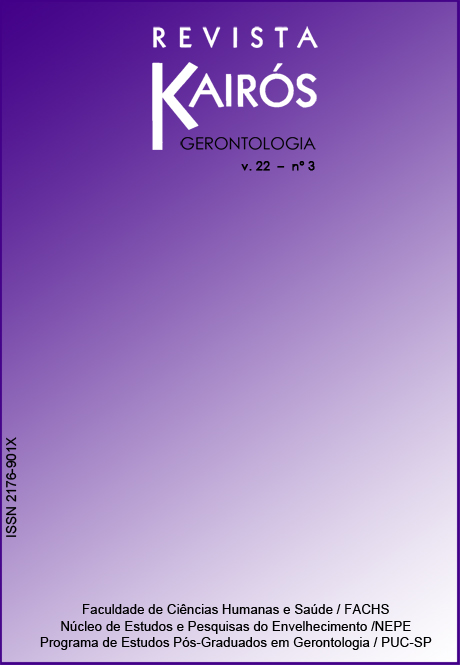Falls in elderly: perceptual aspects of fall risk and fear of falling
DOI:
https://doi.org/10.23925/2176-901X.2019v22i3p369-383Keywords:
Aging, Elderly Health, Accidental Falls.Abstract
Aging is a natural and progressive process marked by musculoskeletal, cognitive and perceptual changes that can lead the elderly to present episodes of falls. This study aimed to analyze the relationship between the number of falls, the perception of the risk of falls and the fear of falling in the elderly, of both sexes, aged 60 years or over. The study has a cross-sectional design and was composed of 106 elderly people (69.64 ± 8.94 years). The perception of falls was assessed using the Falls Risk Awareness Questionnaire (FRAQ) and the fear of falling using the Falls Efficacy Scale - International (FES-I). It can be concluded that the smaller the number of drugs consumed, the number of falls and the fear of falling, the greater the perception of the risk of falls for the elderly. In addition, it was also possible to observe that the greater the consumption of medications, the greater the fear of falling for the elderly.


